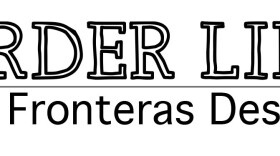Mexico is taking a small but radical new step this week in its ongoing efforts against trafficking syndicates. It will stop parading detainees in front of the news media, stop using defendants’ nicknames and stop naming the drug cartel the person worked for.
It’s a fascinating public relations move on the part of Enrique Peña Nieto’s administration. I can understand the strategy at play here: psychologically, the government can render the cartels irrelevant by simply never making any allusions to the powerhouse structures the defendants allied themselves with.
Usually these arrests are "dog and pony shows." I'm always struck by the silence of the affairs; it’s nearly tactile. The men (usually men) stand facing stoically ahead, their hands cuffed in front or in back. Their weapons or drug stashes or money are laid out on a table in front of them. Behind them, there is usually a large banner of the arresting agency, military or federal or state police. Armed officers or soldiers stand at the vanguard, staring straight ahead just as severely, one finger hovering near the trigger-guard of the rifle they’re carrying. A commanding official stands nearby, ready to answer only the most basic questions: the charges levied against the defendant, when the arrest happened, etc.
The entire event is quiet, almost silent. I have watched these arresting ceremonies in Sonora, Sinaloa, Tamaulipas, Chihuahua and Baja California, and I have never seen a defendant raise a single fuss.
Reporters gather around, filming and shooting every possible angle of the event. And then it’s over. The defendant is led away, the table dismantled, the evidence boxed up and it’s on to the next one.
But sometimes, these events look so scripted that the hairs raise on the back of my head.
Take a look at this video from February 2010. It was a little different. José “El Jabalí” Vázquez Villagrana (the Wild Boar), was dragged out in front of the news media following his arrest. Vázquez admitted on camera that he controlled the routes through the northern Sonora cities of Santa Ana and Magdalena de Kino for the Sinaloa Cartel. He said he earned $1,000 for each drug-laden car that passed through and he acted as an enforcer for the Sinaloans.
Then there’s this exchange:
Federal interrogator: “Have you ever spoken with El Chapo (Joaquín Guzmán Loéra)?”
Vázquez: “I spoke with him by phone one day.”
Federal interrogator: “What does he say?”
Vásquez: "That everything’s peaceful. That we behave ourselves. That nobody run this place like a drug plaza, that nobody rob or assault; that anyone who wants to do these things needs to be removed from the area.”
I wasn’t sure what purpose the video was supposed to serve; Vásquez sounded like a PR man for the Sinaloa Cartel. Not only a voice for the cartel, but one being promoted by the government.
Now, this new policy does raise some interesting questions about the transparency of detentions.
Under the terms, Vásquez would be arrested and led away to face a judge for his crimes. But court hearings are closed affairs and Vásquez carried some rank and power within the Sinaloa Cartel’s structure. Men like Vásquez are high-profile public enemies given the context of the amount of crimes and money they worked with.
I can see the importance of Peña Nieto’s efforts in minimizing the importance of a group of people like these here. But it also leads to questions: Are we entering an age in Mexico where a powerful crime figure simply disappears into the legal system? How do we learn the depth of the accusations they are charged with? And, perhaps most importantly, these proceedings can take years. How do we find out whether the government is telling the truth?







